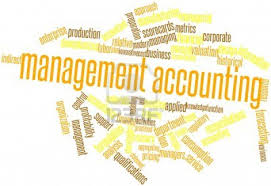Course Details
Your Growth, Our Mission

Course Description
The Training Course Will Highlight ?
The course begins with an introduction to forms of contemporary strategic practice and strategy research, and draws out the interplays between both. Rational Planning, Evolutionary, Procession and Systemic approaches are covered, and the roles of accounting within each identified. There is then a focus on recent management accounting based techniques (e.g. Direct Product Profitability, Customer Profitability Analysis) is supplemented with an introduction to the ways in which financial accounting based techniques for tracking Shareholder Value also play a role. The move to studying Strategy as Practice (what strategists do) is used as a basis for seeing how far accounting is what strategists do and the drift towards inward and outward facing organizations where all must be strategic and professional. The possibility of Strategy as Accounting is introduced as one increasing future trend.
Training Objective
The course begins with an introduction to forms of contemporary strategic practice and strategy research, and draws out the interplays between both. Rational Planning, Evolutionary, Procession and Systemic approaches are covered, and the roles of accounting within each identified. There is then a focus on recent management accounting based techniques (e.g. Direct Product Profitability, Customer Profitability Analysis) is supplemented with an introduction to the ways in which financial accounting based techniques for tracking Shareholder Value also play a role. The move to studying Strategy as Practice (what strategists do) is used as a basis for seeing how far accounting is what strategists do and the drift towards inward and outward facing organizations where all must be strategic and professional. The possibility of Strategy as Accounting is introduced as one increasing future trend.
Target Audience
Senior managers with responsibility for or involvement in the development or implementation of competitive strategy, Financial managers with a close involvement in a different functional area (e.g. marketing accountants), Finance staff providing supporting information for strategic decisions
Training Methods
Daily Agenda
Introduction to & Definition of Strategic Management Accounting
- Understanding the relations of Strategy to Accounting
- Role of strategic management accounting (SMA)
- Business performance factors and their influence on management and management accounting
- Context of traditional tools and methods of management accounting
- Relationship between management accounting and strategic management tools
- SWOT analysis
- Value chain analysis
- Portfolio analyses
Strategic Performance Measurement
- Basic conceptual approaches to performance measurement
- Criteria and definition
- Revenue and cost analysis for strategic management
The Calculation of Costs and Prices
- Target costing, establishing a target price and its relation to the pricing strategy
- Life-cycle costing (LCC), context, pros and cons
- Life-cycle contribution assessment and its impact on investment projects
- LCC and management of research and development costs
Implementation of Strategic Management Performance Tools
- Costing system for tactical and operational level
- Strategic, tactical and operational levels of analysis (standard costing and variance analysis)
Activity-Based Management
- ABM, Value/Based Management, Just-In Time, Total Quality Management
- Activity-based accounting tools: ABC, ABB, zero-based budgeting, customer-profitability analysis
Quality Management
- Management accounting and its relationship to internal audit and total quality management
- Quality and quality management as a corporate performance issue
- Identification and optimization of quality costs
Management Control Systems
- SBU performance measurement
- Centralization and decentralization from the perspective of strategic management
- Understanding the relations of Strategy to Accounting: Strategy as accounting
- Organizational structures and strategic management information support
- Balanced Scorecard Performance Management Systems, including the Balanced Scorecard
- Performance Measurement
- Management and Improvement in Service Businesses
- Strategic Management
- Risk Management
- Leadership, Change and Management Accounting
Accreditation
BTS attendance certificate will be issued to all attendees completing minimum of 75% of the total course duration.
Quick Enquiry
Request Info
Related Courses
Your Growth, Our Mission

